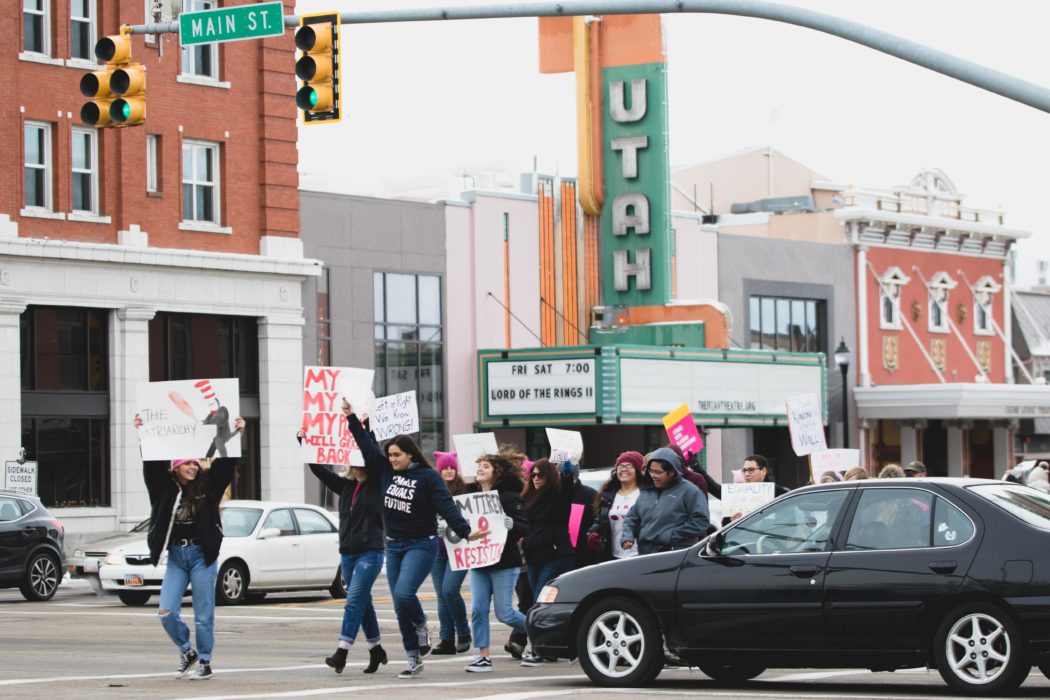USU students, faculty and community ‘look back to march forward’ at Logan’s Women’s March
Utah State University students and professors braved the frigid temperatures with other community members as they participated in the Women’s March Saturday in Logan.
Women, men and various dogs gathered in front of the Historic Cache County Courthouse carrying signs. Some were seen wearing pink hats representing “The Pussyhat Project.”
Multiple USU students, professors and community members spoke before the marching began.
Karina Hernandez, president of Theta Nu Xi, USU’s multicultural sorority, spoke about how people from other countries, like her parents, are “guests” in the United States.
“In my home, being a guest means being a servant to your host because it’s an expression of gratitude. That is changing,” Hernandez said.
Hernandez also said seeing her parents’ hard work and service growing up influenced her value for service today.
“From their example, I was taught to relentlessly serve those around me without asking for anything in return,” she said.
Gonca Feyza Soyer shared her experiences as a Muslim woman living in America. She said she was naive when she first came to the United States eight years ago.
Soyer said she came to the United States with a dream — to get her graduate education. She is a Ph.D. candidate with the University of North Texas and works as an instructor at USU.
Soyer said she thought she could come to the U.S. to get her education and nobody would judge her for wearing her headscarf.
“I wasn’t allowed to be myself in Turkey, where I’m from, and have an education,” Soyer said.
Soyer added that she wanted to be herself, wear a headscarf and have an education.
She said she is noticing change.
“Last year I realized that I am being acknowledged, and I am not alone. There are women and men out there supporting what I do, what I believe in, and who want me to be myself,” Soyer said.
Colleen O’Neill, an associate professor of history, spoke about how events in the past are still happening today.
O’Neill brought up iconic instances from the past where women have spoken up against abusers.
“Women have been seeking justice and seeking men’s accountability for a long time,” she said.
O’Neill added that it seems the difference between the past and the present is that women are speaking up and abusers are being held to task for their behavior — such as men losing their jobs after the “Me Too” movement on social media in 2017.
“The Women’s March last year has made an impact on women running for office,” O’Neill said. They are “organizing their communities and campaigns to challenge layers of injustice, including homelessness, police brutality.”
O’Neill added that women are demanding rights for the LGBT community, clean air, the protection of land and “reproductive justice.”
O’Neill talked about the “small victory” last year at Standing Rock.
“For months, thousands braved the harsh weather and endured the violent tactics,” she said of the Dakota Access Pipeline protesters. “We managed to win.”
USU students who attended the Women’s March showed their support for the message it brought.
“I want to continue the progress we had last year, where we had the largest numbers of people coming out and marching in response to the election of Donald Trump as President,” said Joshua Johnson, a junior studying international business and global communications. “I want to be an individual who can help others feel they are supported in their efforts.”
@bjr2460

